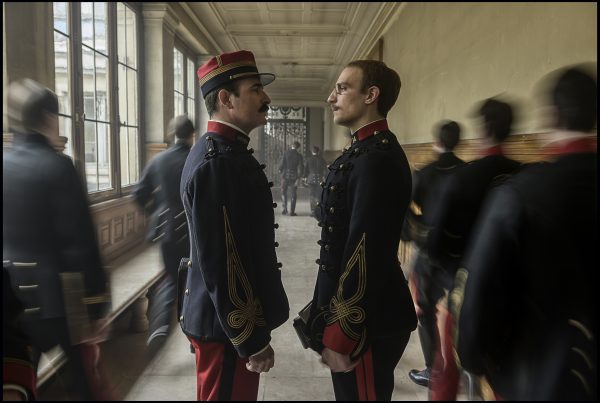It is the great actor’s lot in life that he can’t just be a great actor. He must also direct! Yes, because that is the where a film’s creative pulse is generated—not in the hands of actors herded into position like cattle, as Hitchcock so bluntly dismissed them, but in the cowherd calling the shots.
When he’s not singing, Russell Crowe is usually a great actor, but as he proves in “The Water Diviner,” his first film behind the lens, he is no director.

Set largely in Istanbul and surrounding Turkish cities in the aftermath of World War I—but shot mostly in Australia—“The Water Diviner” also stars Crowe as Connor, the intuitive-bordering-on-psychic title character, who uses dowsing rods to locate wells deep beneath his draught-stricken homestead. Four years have passed since his three sons apparently perished in the siege of Gallipoli, and his wife has not overcome the trauma; she’ll soon be joining them. Left with nothing, Connor leaves on horseback to visit the location of the bloodiest massacre of World War I, in order to exhume his sons’ missing remains and bury them with their mother.
Connor approaches his goal with the mulish obstinacy of a Liam Neeson action hero. His visit is unwelcome from every direction; he reopens tribal wounds between the English and the Ottomans, and he battles prejudice and bureaucratic hurdles, even as a plot twist keeps a semblance of hope alive.
This is a compelling idea for a movie, but it needs a surer hand behind the camera. As pretty as Andrew Lesnie’s sun-dappled cinematography is, Crowe is an amateur visual storyteller. Editing rhythms are awkward and disjointed, a curious number of close-ups seem to be filmed in front of artificial green-screens, and many of his scenes appear to be, as the saying goes, “fixed in post.”

But the movie’s crippling flaws have more to do with tone and its sense of place than its technical ineptitude. The settings in “The Water Diviner” feel as much like Istanbul as a visit to Epcot’s Tokyo exhibition feels like visiting Japan. This is another white-man-in-a-foreign-land culture-clash experiment, and Crowe imbues Turkey with Hollywood’s shallow, hokey exoticism. The movie’s idea of local color is an old man attempting to pluck and eat a live chicken, and Crowe’s own character is a fount of stupid Anglo-American gaffes, such as mistaking a muezzin’s wail for a street barker trying to sell something.
All of this is consistent with a crushingly simplistic film that treats everybody as a cardboard cutout spouting melodramatic trailer bytes: “For me, this place is one big grave,” “hope is a necessity where I come from,” “I measure a man by how much he loves his children,” and so on. Fuzzy battlefield flashbacks share screen time with a rote romance, risible humor and telegraphed action sequences—a crowd-pleasing mélange of genres so transparently calculated that it’s difficult to be truly moved by the results. Even in the big revelation at the film’s climax, Crowe can’t resist lathering the moment with cheap sentiment.
The only moment in “The Water Diviner” that feels real is that wordless early scene in which Connor divines said water from the ground. The rest of the film is all wet.
“The Water Diviner” opens in most theaters Friday.







